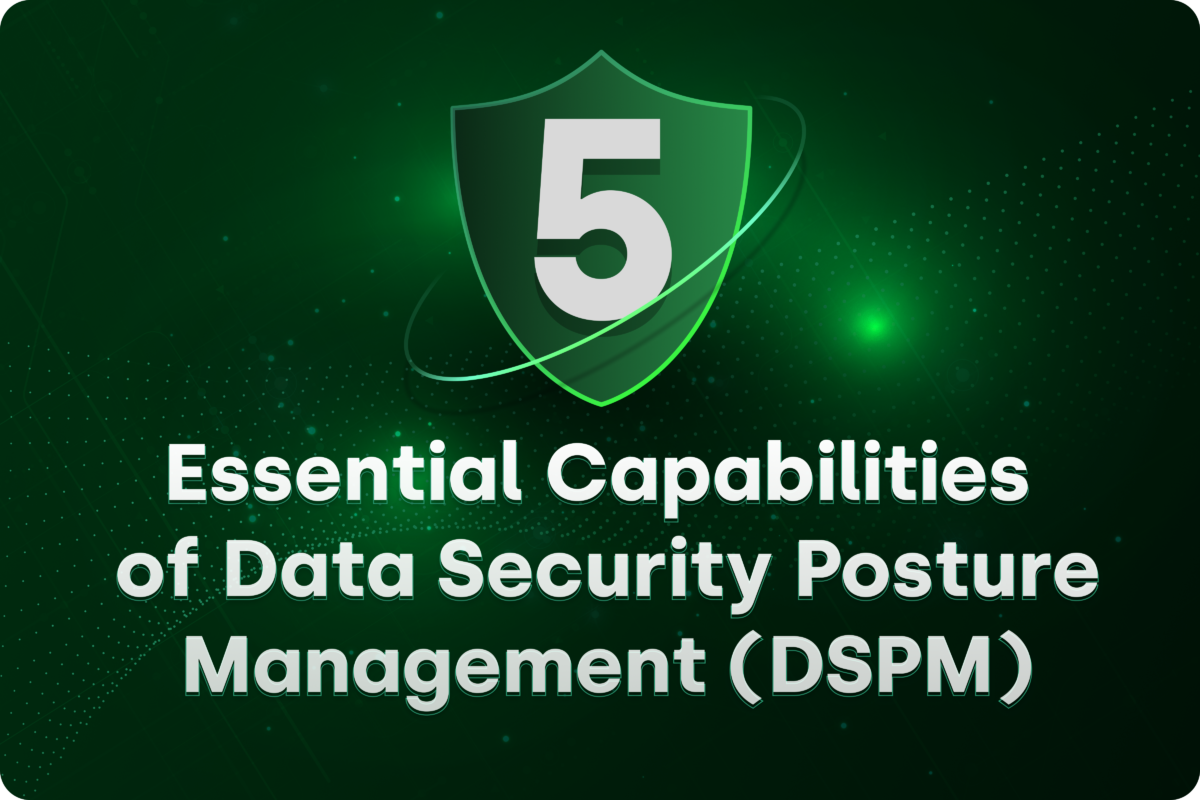The Essential Capabilities of a DSPM Solution
April 24, 2023 | 4 min. read

There’s been a worldwide shift from on-premises to cloud storage and a boom in data democratization (making data accessible and usable across the entire organization). These two shifts have resulted in an “innovation attack surface”—what we at Laminar call the web of risk inadvertently created by developers and data scientists as they move, copy and share data in their search to innovate faster than ever before. This new reality has made it trickier than ever for organizations to secure data in a constantly changing cloud ecosystem.
Many teams struggle with data protection in the cloud because they don’t have the right approach. Some try to use manual or homegrown processes. Others focus on their legacy, on-premises solutions (such as DLP), which can’t keep up with the rapid pace of cloud innovation — especially the constant motion of data. Or, they don’t do anything at all, putting themselves at risk of a data breach and its consequences.
Data Security Posture Management (DSPM) solves these challenges by providing visibility and control for multi-cloud data security, privacy, and governance initiatives.
It’s important to perform due diligence when searching for a DSPM solution. After all, the solution needs to be robust enough to cover your entire cloud ecosystem and its day-to-day changes. Plus, it must be user-friendly and straightforward, as it supports the needs of numerous stakeholders; security of course, but also governance and privacy.
With that said, how do you choose the best DSPM solution for your organization? Here’s a list of key capabilities that it should provide:
Your chosen DSPM solution should provide a comprehensive view of sensitive data across all cloud environments (including IaaS, PaaS, and SaaS services). Holistic visibility means everyone in your organization can work together to understand data ownership and mitigate risk. To fully enable this, your DSPM solution should report…
Given the value of an organization’s data (consider it as valuable as oil or even uranium), it’s important to keep it clean and organized. Your DSPM solution should help with this by enabling users to locate and purge misplaced, redundant, and obsolete data. It should also be able to set policies that continuously maintain data quality in the future, in keeping with your organization’s data governance framework.
In addition, your chosen DSPM solution should have the ability to detect data that is overexposed (e.g., public read access), unprotected (e.g., no encryption), or misplaced (e.g., sensitive data in the wrong environment). Then, it needs to provide remediation guidance, prioritized by risk.
Next, the DSPM solution should provide data access governance: identifying all internal/external users, roles, and resources with access to sensitive cloud data stores. Then, it should continuously track privileges based on each user’s roles and responsibilities, including third-party access to data.
Lastly, your DSPM solution must detect and remediate regulatory/industry compliance violations. It should do this via a policy engine with common frameworks built into it. The DSPM should be able to generate audit-ready compliance reports to prove that your team successfully remediated these data violations.
To deliver on these key capabilities requires a robust data security posture management solution with a multitude of features that fall into three essential criteria. These criteria are:
Dive deeper into what features you should look for in each of these criteria in our ebook, “A Buyer’s Guide to DSPM Platforms.”
Here at Laminar Security, we provide a complete DSPM platform for a multi-cloud environment, combining all of these key capabilities to fulfill the three criteria of a true DSPM solution. Learn more about Laminar’s platform for data protection in the cloud today!
Get notified when a new piece is out